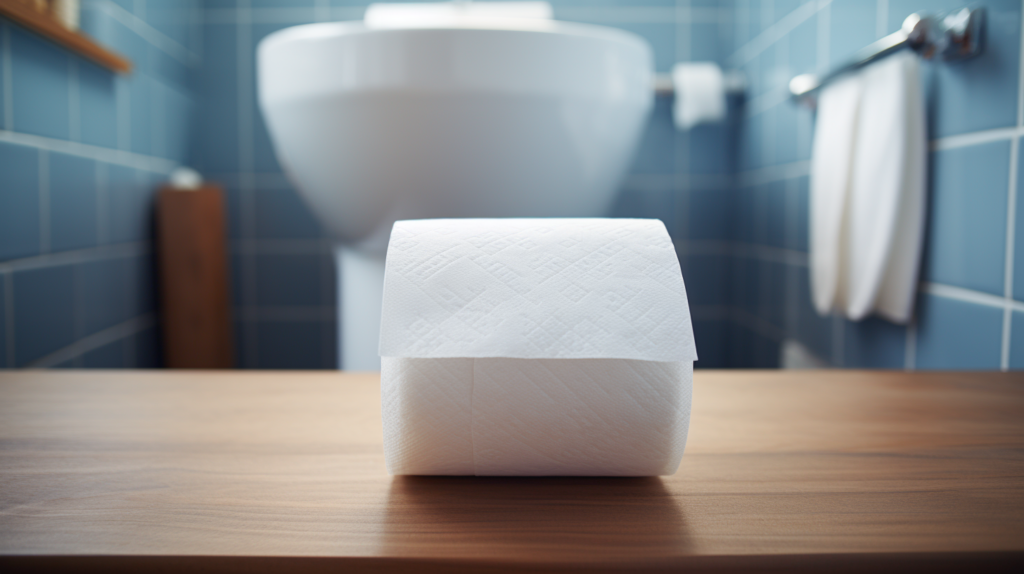If you’re taking probiotics and experiencing constipation, you’re not alone. While probiotics offer numerous benefits for the gut, some people may experience constipation as a side effect. Fortunately, there are several strategies you can follow to manage this issue and continue enjoying the benefits of probiotics.
In this section, we will explore some tips and solutions to help you deal with probiotic-induced constipation. From evaluating your probiotic choice to adjusting the dosage, considering timing, maintaining hydration, increasing fiber intake, engaging in gentle exercise, exploring natural remedies, seeking professional guidance if needed, monitoring your symptoms, and being patient, we will discuss several ways to find relief.
Key Takeaways:
- Probiotic-induced constipation can be managed by following several strategies.
- Evaluate your probiotic choice and select strains that are less likely to cause constipation.
- Consider adjusting the dosage and timing to minimize the risk of constipation.
- Stay hydrated and increase your fiber intake.
- Engage in gentle exercise and explore natural remedies.
- Seek professional guidance if needed and monitor your symptoms.
- Be patient and give it time for your body to adjust to the new bacteria.
Understanding Probiotics and Constipation
If you have recently started taking probiotics and are experiencing constipation, you may be wondering what is happening in your gut. To understand this relationship better, let’s take a closer look at probiotics and how they can affect your digestive system.
Probiotics are live microorganisms that can confer health benefits to the host when consumed in adequate amounts. They are often referred to as “good bacteria” and can help promote a healthy gut environment by restoring the balance of beneficial bacteria in your digestive tract.
However, probiotics can sometimes cause side effects, including constipation. This occurs as a result of changes in the gut microbiota composition, which can slow down bowel movements and cause difficulty passing stool.
Factors that can contribute to probiotic-induced constipation may include the type of probiotic strain you are consuming, the dosage, timing, and other individual factors.
It’s important to note that constipation is not always a negative side effect of probiotics. In some cases, regular bowel movements may not occur immediately, and it may take some time for your gut to adjust to the new bacteria.
Now that we have a better understanding of probiotics and their potential impact on constipation, let’s explore how you can manage this side effect effectively.

Understanding Probiotics and Constipation: Summary
Probiotics are live microorganisms that promote a healthy gut environment. However, they can cause constipation as a side effect, slow down bowel movements, and cause difficulty passing stool. The type of probiotic strain, dosage, timing, and individual factors can contribute to this side effect. Constipation is not always a negative side effect of probiotics and may take some time to resolve.
Evaluate Your Probiotic Choice
Not all probiotics are created equal, and some may be more likely to cause constipation than others. When choosing a probiotic supplement or food product, there are several factors to consider.
| Factors to Consider | Explanation |
|---|---|
| Strain | Look for strains that are less likely to cause constipation, such as Bifidobacterium lactis or Lactobacillus acidophilus. |
| CFUs | CFUs (colony-forming units) indicate the number of viable bacteria in the product. While higher CFUs may seem like a good choice, it’s important to start with a lower dosage and gradually increase it to avoid digestive discomfort. |
| Delivery method | Probiotics can be delivered in various forms, including capsules, powders, and drinks. Choose a delivery method that works best for your lifestyle and preferences. |
| Quality | Look for products that have been independently tested for quality and purity. |
By evaluating your probiotic choice based on these factors, you can select a product that is less likely to cause constipation and is better suited for your digestive system.
Note: If you are unsure about which probiotic product to choose, consult with a healthcare professional or a registered dietitian for guidance.

Adjusting the Dosage
If you experience constipation from probiotics, adjusting the dosage may help alleviate the symptoms. It’s important to start with a low dose of probiotics and gradually increase it to allow your body to adjust to the new bacteria.
Consult with your healthcare professional or the instructions on the probiotic supplement for recommended dosages. It’s essential to follow the recommended dose for the specific strain you are taking.
When increasing the dosage, pay close attention to any changes in your bowel movements. If you notice any discomfort or constipation, decrease the intake to the previous amount for a few days before trying to increase again.
It’s crucial to avoid a sudden increase in the dosage to prevent any sudden changes in your digestive system, resulting in further constipation. It may take time to find the appropriate dose for your body, so be patient and make adjustments accordingly.

Remember: Adjusting the dosage of probiotics may help alleviate constipation symptoms. Start with a low dose, follow the recommended dosage, and pay attention to any changes.
Timing Matters
When it comes to probiotics and constipation, timing is crucial. Taking probiotics at the right time can minimize the risk of constipation and help you maintain regular bowel movements.
Tip: Take your probiotics with meals. This will help ensure that they reach your gut at the right time and interact with the bile and digestive enzymes effectively.
You may also want to consider taking your probiotics at the same time each day to establish a routine. This can help regulate your digestive system and promote regularity.
However, avoid taking probiotics immediately before bedtime, as lying down can slow down digestion and increase the risk of constipation.

Stay Hydrated
Hydration is essential for maintaining healthy digestion, and it can also help alleviate constipation. When taking probiotics, it’s important to drink plenty of water and other hydrating fluids throughout the day to support regular bowel movements.
The general recommendation is to drink at least eight 8-ounce glasses of water per day. However, your individual needs may vary based on factors such as your body weight, activity level, and climate.
In addition to water, you can also consume hydrating fluids such as coconut water, herbal teas, and fresh juices. However, be mindful of any added sugars or caffeine, which can have the opposite effect and worsen constipation.

Increase Fiber Intake
If you experience constipation from probiotics, increasing your fiber intake can help promote regular bowel movements. Fiber is an essential nutrient that can support digestive health and prevent constipation.
Examples of fiber-rich foods include:
| Food | Fiber Content (grams) |
|---|---|
| Whole grains (oats, brown rice, quinoa) | 3-6 grams per serving |
| Fruits (apples, bananas, berries) | 3-5 grams per serving |
| Veggies (broccoli, carrots, kale) | 2-4 grams per serving |
| Nuts and seeds (almonds, chia seeds, flaxseeds) | 2-5 grams per serving |
If you find it challenging to consume enough fiber through your diet, consider incorporating a fiber supplement into your routine. However, it’s essential to gradually increase your fiber intake to avoid any digestive discomfort.
Note: It’s essential to drink plenty of water when increasing your fiber intake to promote regular bowel movements and prevent constipation.

Gentle Exercise and Physical Activity
Incorporating gentle exercise into your daily routine can help alleviate constipation caused by probiotics. Physical activity stimulates digestion and can help move stool through the intestines.
Low-impact exercises like walking, yoga, and stretching can be effective in promoting bowel movements and relieving constipation. Even short periods of activity throughout the day can make a difference.
Aim for at least 30 minutes of exercise every day to maintain healthy digestion. If you lead a sedentary lifestyle, start slowly to avoid overexertion and discomfort.
| Recommended Exercises | Avoid |
|---|---|
| Walking | High-impact exercises |
| Yoga | Strenuous weightlifting |
| Swimming | Running |
Remember to listen to your body and adjust your exercise routine as needed. If you experience discomfort or pain, stop the activity and speak with a healthcare professional before resuming.

Explore Natural Remedies
While adjusting your probiotic choice and dosage, and modifying your lifestyle habits can address probiotic-induced constipation, some natural remedies can also provide relief. These remedies can complement other strategies or be used alone.
Herbal teas: Certain herbal teas can help soften stool and promote bowel movements. Senna tea is a natural laxative that is particularly effective in relieving constipation. Peppermint tea aids digestion and can relieve abdominal discomfort, while ginger tea has anti-inflammatory properties that can soothe the gut.
| Herbal Teas | Benefits |
|---|---|
| Senna Tea | Effective natural laxative |
| Peppermint Tea | Aids digestion and relieves abdominal discomfort |
| Ginger Tea | Has anti-inflammatory properties that can soothe the gut |
Essential oils: Some essential oils have been traditionally used for digestive issues. Peppermint oil can help relax the muscles in the gut and reduce bloating and discomfort. Fennel oil can stimulate digestion and relieve constipation, while ginger oil has anti-inflammatory and analgesic properties that can ease gut inflammation and discomfort.
| Essential Oils | Benefits |
|---|---|
| Peppermint Oil | Relaxes gut muscles and reduces bloating and discomfort |
| Fennel Oil | Stimulates digestion and relieves constipation |
| Ginger Oil | Eases gut inflammation and discomfort |
While natural remedies can be effective, it’s important to use them with caution and under the guidance of a healthcare professional. Essential oils, in particular, should be used in small amounts and diluted to prevent adverse effects.

Seek Professional Guidance
If despite your efforts, you find that probiotics continue to cause constipation, it may be time to seek professional guidance. A healthcare professional or a registered dietitian can evaluate your symptoms and recommend an appropriate course of action. They can also help identify any underlying causes of your probiotic-induced constipation and suggest additional treatment options.
It’s essential to seek professional guidance if your constipation is severe, persistent, or accompanied by other symptoms such as abdominal pain or bleeding. They can rule out any other potential digestive disorders or complications.
Remember that probiotic-induced constipation isn’t uncommon and can be managed with the right strategies. With patience, perseverance, and professional guidance if needed, you can find relief and continue to enjoy the benefits of probiotics for your gut health.

Monitor and Keep a Journal
When experiencing probiotic-related constipation, keeping track of your symptoms and dietary habits can provide valuable insights into how probiotics affect your digestion. Monitoring your constipation episodes and maintaining a food and symptom journal can help you identify patterns and make necessary adjustments.
Record the following information in your journal:
- The type and dosage of the probiotic supplement or food
- The time of day you take the probiotics
- Your daily water intake
- The amount of fiber in your diet
- Your physical activity level
- The frequency and consistency of your bowel movements
By tracking these factors, you can identify any correlations between your probiotic use and constipation symptoms. You can also identify dietary and lifestyle changes that can aid in relieving constipation. Use this information when discussing your symptoms with a healthcare professional or registered dietitian, as it can provide valuable insight into the underlying causes of your constipation.
Remember to be patient with the process and give yourself time to adjust to the new bacteria. By following the tips and solutions outlined in this article and monitoring your symptoms carefully, you can find relief from probiotic-induced constipation and enjoy the benefits of a healthy gut.

Be Patient and Give It Time
Adjusting to probiotics and managing constipation may take time and patience. It’s important to remember that probiotics are not a quick fix but rather a long-term investment in your gut health. You may not see immediate results, and it may take several weeks for your body to adjust to the new bacteria and establish a healthy gut balance.
During this time, it’s essential to stay consistent with your probiotic routine while being mindful of any changes in your bowel movements. Avoid sudden changes in dosage or probiotic strains, as this can contribute to constipation or other digestive issues.
Remember to continue monitoring your symptoms and keeping a food and symptom journal. This will help you identify patterns and make necessary adjustments to your probiotic routine. With patience and persistence, you can find relief from probiotic-induced constipation and enjoy the benefits of a healthy gut.

Summary of Tips and Solutions
Managing constipation caused by probiotics can be challenging, but there are several potential solutions and tips to alleviate this side effect. Here is a summary of the actions you can take:
- Evaluate your probiotic choice: Not all probiotic strains are created equal, so consider selecting strains that are less likely to cause constipation.
- Adjust the dosage: Modifying the amount of probiotics you consume can help find a balance that works for your digestive system.
- Consider timing: The timing of taking probiotics can affect constipation, so experiment with when you consume them.
- Stay hydrated: Hydration is essential for healthy digestion, so make sure you are drinking enough water and other fluids.
- Increase fiber intake: Fiber can promote regular bowel movements, so try incorporating high-fiber foods or supplements into your diet.
- Engage in gentle exercise: Physical activity can help stimulate bowel movements, so consider low-impact exercises like walking or yoga.
- Explore natural remedies: Herbal teas and essential oils can provide additional support for digestive health.
- Seek professional guidance: If constipation persists, consult a healthcare professional or a registered dietitian for additional treatment options.
- Monitor and keep a journal: Tracking your symptoms and dietary habits can provide valuable insights into how probiotics affect your digestion.
- Be patient and give it time: Adjusting to probiotics and managing constipation may take time, so be consistent and mindful of any changes.
By following these tips and solutions, you can effectively manage probiotic-induced constipation and maintain a healthy gut. Remember that everyone’s body is different, so experiment with these strategies to find what works best for you.

Conclusion
Congratulations! You have learned several strategies that can help alleviate probiotic-induced constipation. By evaluating your probiotic choice, adjusting the dosage, considering timing, maintaining hydration, increasing fiber intake, engaging in gentle exercise, exploring natural remedies, seeking professional guidance if needed, monitoring your symptoms, and being patient, you can find relief from this side effect and enjoy the benefits of a healthy gut.
Remember, everyone’s body is unique and may react differently to probiotics. It’s crucial to listen to your body, give yourself time to adjust, and be patient throughout the process.
Take Action Now
Refer back to the summary of tips and solutions discussed throughout this article and take action accordingly. Don’t forget to monitor your symptoms and keep a food and symptom journal. By implementing these strategies, you can manage probiotic-induced constipation effectively and achieve optimal gut health.
FAQ
Q: What should I do if probiotics cause constipation?
A: If you experience constipation from probiotics, there are several steps you can take to manage this side effect effectively. By following these tips and solutions, you can continue to enjoy the benefits of a healthy gut while addressing probiotic-induced constipation.
Q: How do probiotics affect constipation?
A: Probiotics can potentially cause constipation as a side effect. Understanding the relationship between probiotics and constipation is important. We will discuss the impact of probiotics on gut health, why constipation might occur, and the factors that contribute to this issue.
Q: How can I evaluate my probiotic choice?
A: Not all probiotic strains are created equal. In this section, we will explore how to evaluate your probiotic choice and select strains that are less likely to cause constipation. We will provide tips on what to look for when choosing a probiotic supplement or food product.
Q: Can adjusting the dosage help with probiotic-related constipation?
A: Adjusting the dosage of probiotics can be helpful if you experience constipation. We will provide guidance on how to modify the amount of probiotics you consume to find a balance that works for your digestive system. Gradually increasing the dosage is important to avoid sudden changes that could contribute to constipation.
Q: Does the timing of probiotic consumption matter?
A: Yes, timing can play a crucial role when it comes to probiotics and constipation. This section will explore the optimal timing for taking probiotics to minimize the risk of constipation. We will discuss whether it’s better to take them on an empty stomach or with food and provide tips on how to integrate them into your daily routine.
Q: How does hydration affect probiotic-related constipation?
A: Staying hydrated is important for maintaining healthy digestion and alleviating constipation. In this section, we will discuss the importance of staying hydrated when taking probiotics. We will provide tips on how much water you should be drinking and suggest other hydrating fluids that can support regular bowel movements.
Q: Can increasing fiber intake help with probiotic-induced constipation?
A: Increasing your fiber intake may help counteract probiotic-induced constipation. This section will explore high-fiber food options and supplements that can be incorporated into your diet. We will also discuss the importance of gradually introducing fiber to avoid any digestive discomfort.
Q: How can gentle exercise and physical activity relieve probiotic-related constipation?
A: Physical activity can have a positive impact on your digestive system. This section will discuss the benefits of gentle exercise for relieving constipation caused by probiotics. We will suggest various low-impact exercises that can stimulate bowel movements and keep your digestive system functioning smoothly.
Q: Are there any natural remedies for probiotic-induced constipation?
A: Natural remedies can provide additional support in relieving probiotic-induced constipation. In this section, we will explore herbal teas, essential oils, and other natural remedies that have been traditionally used for digestive health. We will provide recommendations and precautions for using these remedies effectively.
Q: When should I seek professional guidance for probiotic-induced constipation?
A: If probiotics continue to cause constipation despite your efforts, it may be beneficial to seek professional guidance. This section will discuss when it’s appropriate to consult a healthcare professional or a registered dietitian. We will explore potential underlying causes and additional treatment options for probiotic-induced constipation.
Q: Why should I monitor my symptoms and keep a journal?
A: Keeping track of your symptoms and dietary habits can provide valuable insights into how probiotics affect your digestion. This section will suggest monitoring your constipation episodes and maintaining a food and symptom journal. We will discuss what information to record and how this can help you identify patterns and make necessary adjustments.
Q: How long does it take to adjust to probiotics and manage constipation?
A: Adjusting to probiotics and managing constipation may take time and patience. This section will emphasize the importance of giving your body time to adjust to the new bacteria and establish a healthy gut balance. We will provide tips on staying consistent with your probiotic routine while being mindful of any changes in your bowel movements.
Q: Can you summarize the tips and solutions for probiotic-related constipation?
A: In this section, we will summarize all the tips and solutions discussed throughout the article. We will provide a concise list of actions you can take if probiotics cause constipation, allowing you to refer back to this section for quick guidance.














